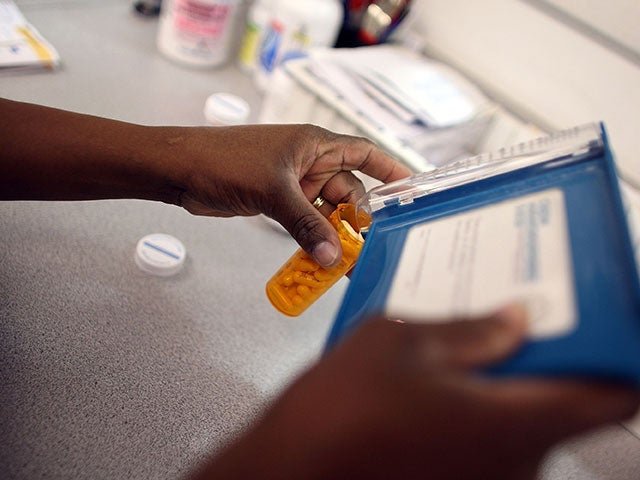The Independent's journalism is supported by our readers. When you purchase through links on our site, we may earn commission.
Antibiotic resistance shows how our growth-at-any-cost model is destroying itself
The scariest thing is that we’ve known about this possible outcome for decades and done nothing to prevent it

Your support helps us to tell the story
From reproductive rights to climate change to Big Tech, The Independent is on the ground when the story is developing. Whether it's investigating the financials of Elon Musk's pro-Trump PAC or producing our latest documentary, 'The A Word', which shines a light on the American women fighting for reproductive rights, we know how important it is to parse out the facts from the messaging.
At such a critical moment in US history, we need reporters on the ground. Your donation allows us to keep sending journalists to speak to both sides of the story.
The Independent is trusted by Americans across the entire political spectrum. And unlike many other quality news outlets, we choose not to lock Americans out of our reporting and analysis with paywalls. We believe quality journalism should be available to everyone, paid for by those who can afford it.
Your support makes all the difference.“The time has come to close the book on infectious disease,” US Surgeon General William Stewart told Congress in 1967. “We have basically wiped out infection in the United States”.
The disturbing news this week that the world is on the cusp of a “post-antibiotic era” makes this breezy claim now seem almost comically naive.
You can’t say we weren’t warned. Antimicrobial resistance (AMR) already accounts for roughly 700,000 deaths per year globally and has been forecast to rise to 10 million deaths by 2050. That’s more than cancer, diabetes or cholera. And that prediction was made when we still had effective drugs.
The costs of dealing with such a crisis would be astronomical; estimates suggest it could cause a reduction of 2% to 3.5% in global Gross Domestic Product (GDP) and cost the world up to $100 trillion USD.
The scariest thing is that we’ve known about this possible outcome for decades and done nothing to prevent it. It’s because our established economic models, founded on the misplaced belief that infinite ‘growth’ is both possible and desirable, are funnelling us towards oblivion.
It’s not a coincidence that the drug-resistant gene present in bacteria found in both pigs and humans was discovered in China. Over the past 30 years, the People’s Republic has been the archetype for turbo-charged growth following the Western free market capitalist model (without the pesky bother of democracy).
Among other things, this has led to a huge intensification of agriculture, to meet soaring demand for meat and dairy products especially: China now consumes half the world’s pork and 20% of its poultry. A large proportion of Chinese pork is raised in vast industrial-scale sheds where it is pumped full of growth-promoting antibiotics including colistin, which until now had been the ‘antibiotic of last resort’.
This global increase in livestock farming has brought about a greater concentration of animals, often in unsanitary conditions that become breeding grounds for potentially deadly bacterial mutations.
Consequently, we’ve seen an explosion of animal-to-human diseases or ‘zoonoses’ in recent years including SARS, bird flu and Ebola. While these outbreaks have so far been relatively localised, it’s worth noting that the 1918 Spanish Influenza global pandemic, which claimed around 40 million lives – more than were killed in World War I – was in fact an avian flu strain that crossed over to humans.
It’s striking that many of these zoonotic epidemics have started in countries pursuing rapid ‘development’ along the path trodden earlier by Western countries. In a globalising world, there’s been a significant shift in livestock numbers from the ‘Global North’ to the ‘Global South’ as food has become an international commodity.
Sadly, even to suggest there might be an alternative to the trends leads to accusations that you want to return to unproductive medieval-style agriculture. In fact, there are practical changes we could make to the way we farm animals that could benefit the planet and reduce the risk of zoonoses, as well as maintaining or even boosting yields. These include reducing overcrowding, quarantining of diseased animals, greater use of indigenous species and learning from traditional husbandry techniques that have allowed communities to raise animals even in harsh environments for millennia.
Antibiotic resistance is one symptom of a global system that seems intent on destroying itself. We might also point to climate change as an example of a mad dash for economic growth trumping all other concerns until it’s too late to do anything meaningful about it.
While climate change at least is being addressed on a global level at the upcoming COP21 Summit in Paris (the success of which remains to be seen), we now need urgent global action on antibiotic resistance too.
But to build long-term prosperity built around notions of true sustainability we also have to acknowledge a basic truth: growth at any cost is no longer an option.
Professor Henrietta Moore is at the UCL Institute for Global Prosperity
Join our commenting forum
Join thought-provoking conversations, follow other Independent readers and see their replies
Comments